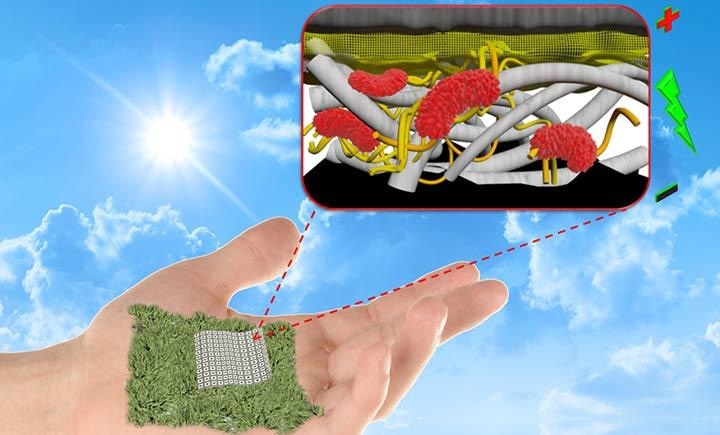Aug 9 2018
In the future, batteries may be manufactured using paper. A biodegradable, paper-based battery that is more efficient than formerly possible has been built by scientists at Binghamton University, State University at New York.
 Researchers at Binghamton University, State University at New York have created a biodegradable, paper-based battery that is more efficient than previously possible. (Credit: Seokheun 'Sean' Choi)
Researchers at Binghamton University, State University at New York have created a biodegradable, paper-based battery that is more efficient than previously possible. (Credit: Seokheun 'Sean' Choi)
For many years, there has been anticipation in the scientific community regarding the possibility of paper-based batteries as an eco-friendly substitute. However, the proposed designs were never quite robust enough, they were hard to create and it was doubtful whether they were truly biodegradable.
This new design takes care of all of those issues.
Associate Professor Seokheun "Sean" Choi from the Electrical and Computer Engineering Department and Professor Omowunmi Sadik from the Chemistry Department teamed up for the project. Choi put together the design of the paper-based battery, while Sadik was able to make the battery a self-sustaining biobattery.
There's been a dramatic increase in electronic waste and this may be an excellent way to start reducing that. Our hybrid paper battery exhibited a much higher power-to-cost ratio than all previously reported paper-based microbial batteries.
Seokheun "Sean" Choi, Associate Professor, the Electrical and Computer Engineering Department, Binghamton University
The biobattery uses a hybrid of engineered polymers and paper. The polymers—poly (amic) acid and poly (pyromellitic dianhydride-p-phenylenediamine)—were crucial to offering the batteries biodegrading properties. The team tested the degradation of the battery in water and it unmistakably biodegraded without the requirements of special conditions, facilities, or addition of other microorganisms.
The polymer-paper structures are lightweight, economical, and flexible. Choi said that flexibility also offers another advantage.
Power enhancement can be potentially achieved by simply folding or stacking the hybrid, flexible paper-polymer devices.
Seokheun "Sean" Choi
The team said that making the biobatteries is quite a direct process and that the material allows for alterations based on what configuration is required.
The research paper, titled "Green Biobatteries: Hybrid Paper-Polymer Microbial Fuel Cells," was reported in Advanced Sustainable Systems.
The research was aided by a grant from the National Science Foundation and done via the Center for Research in Advanced Sensing Technologies and Environmental Sustainability (CREATES).